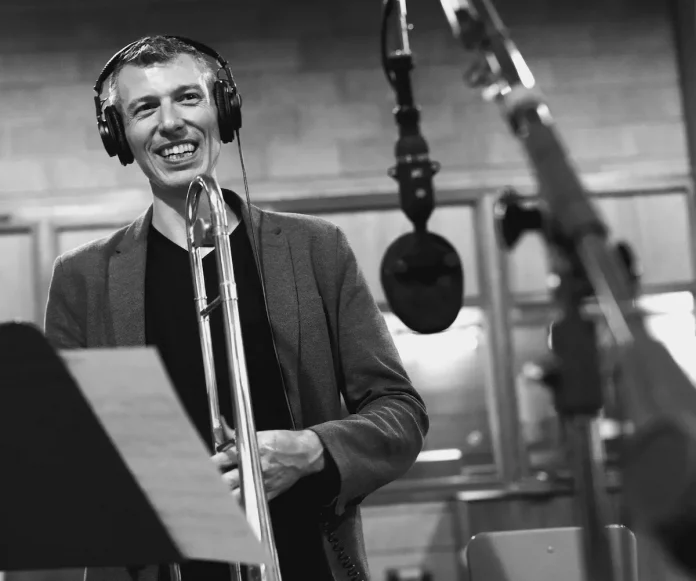Oscar Peterson: Night Train (WaxTime 771834)
The Oscar Peterson trio took a fresh look at 12 classics from the repertoire on this famous 1962 set, here reissued on vinyl. It includes no less than six examples of the blues, jazz music’s oldest harmonic structure.
The provenance of the album’s title is quite fascinating. It began life as That’s The Blues Old Man when Johnny Hodges recorded it in 1940 with a small group that included Duke Ellington. It was expanded by Ellington himself in 1946 as Happy-Go-Lucky Local but it took on a new lease of life when Jimmy Forrest changed the name to Night Train on his 1951 recording. It became a huge R&B hit and when I was working with the Freddie Mack band in the early 60s we had to play it twice nightly.
Peterson really puts on the afterburners for C Jam Blues, initially exploring the 16-bar form before switching to a 12-bar sequence. Bag’s Groove is a feature for the great Ray Brown but his four choruses are a little under-recorded. The Honeydripper was a 1945 hit for Joe Liggins. It is the shortest track here but it is two minutes of hard-swinging intensity by the trio. The super-slow tempo on Things Ain’t What They Used To Be works just perfectly. Band Call is an obscure Ellington gem circa 1954. Peterson had started featuring it on his 1961 European tour and it remained in the book until 1964. An eight-bar theme soon becomes a 12-bar during some inspired choruses. The trio even manage to find some funky overtones on Georgia and I Got It Bad And That Ain’t Good. One of many highlights is Moten Swing, a non-blues selection based on You’re Driving Me Crazy.
Nick Finzer: The Jazz Orchestra Volume 1 (Outside in Music 2506)
Master trombonist Nick Finzer studied at the Eastman School of Music before moving to Juilliard where he was mentored by Steve Turre. He has been making waves recently around the New York jazz scene with notable appearances at Carnegie Hall, Birdland, the Blue Note and Jazz at Lincoln Centre. In 2020 Downbeat’s critics voted for him as a “rising star” and trombone legend Wycliffe Gordon has acknowledged him as “the new voice (in) the pantheon of upcoming trombone greats”.
Finzer has released seven critically acclaimed small-group albums over the years and this memorable date recorded in 2022 is his first venture into the big-band tradition. Decades after the end of that era the genre still remains popular with musicians and the public. The buoyant Say When – a J.J. Johnson original introduced in 1966 – is notable for the leader’s four bravura choruses demonstrating immaculate control throughout his impressive range. The slowly moving harmonies of The Guru provide a creative platform for Finzer and trumpeter Anthony Hervey to explore. Lament is one of Johnson’s loveliest ballads, famously included on the 1957 Miles Davis and Gil Evans album Miles Ahead. (In 1980 Meredith d’Ambrosio added one of her signature lyrics to it on her Love Is Not A Game CD.) It opens with an ensemble ostinato which adds to the drama of the chart. Just Past The Horizon has some fine Sahib Shihab-like baritone from Tony Lustig. Shihab, of course, will be remembered from all those impressive years underpinning the great Kenny Clarke-Francy Boland big band during the 60s.
Another Finzer album worth tracking down is Legacy. It’s a tribute to J.J. Johnson and it features Renee Rosnes, Rufus Reid and Lewis Nash, who had all worked with the great man (Outside In Music 2406CD).
Dena DeRose: Mellow Tones (HighNote HCD 7354)
New York-born Dena DeRose is currently the head of jazz vocals at the University of Music & Drama in Graz, Austria. She also regularly teaches at the Stanford Jazz Workshop and as a performer she has recorded 30 albums, many receiving four stars in Downbeat. I first became aware of her singular talents when I acquired Scott Hamilton’s 2015 CD La Rosita. It is one of five albums they have recorded together, the most recent being Talk To Me Baby in 2022.
The well-named Mellow Tones features neglected gems from the songbook repertoire together with a stimulating selection of rarely performed material. Her delicate delivery, almost free of vibrato, occasionally calls Diana Krall to mind. She demonstrates impeccable intonation by opening In A Mellow Tone a capella. A Rose Room contrafact, it allows her to display some Red Garland-like locked-hands piano along the way. The bittersweet Two For The Road is one of Henry Mancini’s loveliest melodies. The lyric was provided by Anthony Newley’s long-time collaborator Leslie Bricusse. Benny Carter’s Only Trust Your Heart was premiered on Stan Getz’s classic 1964 Getz Au Go Go album with Astrud Gilberto. The composer waited until 1988 to record it himself. Thank You For Everything is better known as Lotus Blossom, an intriguing original by Billy Strayhorn. Edmund Anderson’s lyric is a perfect vehicle for DeRose’s fragile, world-weary delivery. The set ends with Slide Hampton’s My Frame For The Blues. Dena wrote the lyric as a salute to Hampton who composed it for Maynard Ferguson on the 1958 Message From Newport album. Along the way she name-checks her stellar accompanists, Martin Wind (bass) and Matt Wilson (drums). Guest Ed Neumeister sits in here with some extrovert trombone ensuring that the album closes with a swinging flourish.

